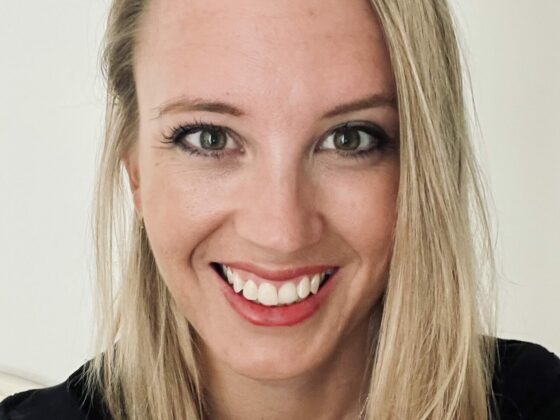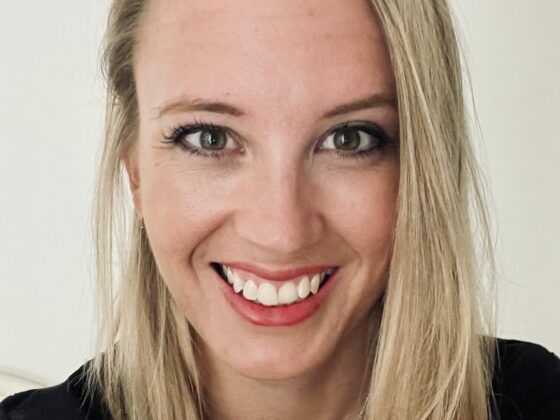Josiah:
I don’t want financial literacy to hold you back from hospitality leadership, and today we’re learning how to develop our skill set in this area. David Lund is the hotel financial coach and in this episode, you’ll hear about his own journey to leadership, advice on where to get started on your journey, how to refine your financial skills, as well as David’s new book, the Prosperous Hotelier. I wonder if we could just spend a couple of moments talking about your own career in hospitality, and then we’ll get into why you wrote the book.
David:
Yeah, so I’ve been working in the hotel business for 40 years now. You know I worked for a great brand, Canadian Pacific, which acquired Fairmont, and then we became Fairmont Hotels in the late 90s, early 2000s and we rebranded all of our hotels Fairmonts. And then we became a management company and we added a lot of additional hotels and for the first 10 years of my career I was in operations and I was on the way to becoming a general manager – at least that was my plan and we had a bit of a recession. I was offered a layoff or a job in accounting and I went home sucking my thumb, basically. But I talked to a good friend of mine the next day and someone who’s a bit older than I was, and he says you know, David, that’s a great opportunity, you would learn a lot and you know, we need good people in accounting, don’t just dismiss it. And so I listened to him. Actually, I took his advice and a couple of years later I was the assistant controller at another hotel, and a couple of years after that I was a controller. And then a few years later I was a regional controller. Then I took a sidestep but I was a hotel manager for a couple of years because I still had that itch to be a GM. But I really didn’t like it. It was just too much. When you’re, when you work with numbers, there’s a fair bit of certainty with things. There’s an answer to most things. There’s a direction. As the GM, I didn’t feel like I had that. I lost something. So I went back to being a controller, a regional controller. I did a stint for almost four years five years at our corporate office in Toronto or as the director of financial systems, benchmarking, replacing a bunch of accounting software and our hotels giving it all standardized. That was a really good experience. And then my last hotel was Fairmont Nob Hill in San Francisco. Great hotel and it was just time to do something different. And I had an itch to do this type of work because I had created a workshop a few years earlier and the workshop was designed to teach the leaders in the hotel about the numbers I write about it in my book and there’s quite a great story around it. But I really didn’t want to do it. But I was kind of forced into a little bit. But when I did it I realized there was something going on there because it was such a game changer for the financial leadership inside of our hotels. And as a director of finance you know you’re always chasing people to get stuff done, get numbers to you, give me your forecast, give me your budget, give me your accruals, give me your commentary, and in your expense reports and in your invoices you name it. You’re always chasing people and by showing the operational leaders what it was all about and how it impacted them and how it could help them and how it could help their career, it really took off. I knew I wanted to make a business out of it. So I left Fairmont, I went to coaching school, I got certified as a professional life and business coach and I did a leadership program with CTI as well a year-long thing, which was great and then for the first three years or so of my business I’ve been doing it for 10 years now I really kind of struggled to find my way, but I persisted and I started writing weekly blogs. I still do write a weekly blog or put out a weekly video. I have about 10,000 subscribers and that gave me the idea to write a book. If I can write all these blogs, I can put them together and write a book.

Josiah:
It’s just amazing to have all this together in just one convenient place. What can a stronger command of financial concepts do for our listeners and for their careers?
David:
In hospitality, it’s all about service and it’s all about engagement with our employees because when you put those two things together you create great opportunities for wonderful experiences for our guests. That’s why we do what we do. But for most people in hospitality, there’s a trajectory that almost pulls you across the room into leadership roles. There’s a lot of turnover and if you’re a good employee, a good worker, focused, you can really accelerate your career. But you hit a point where it’s not about the guests so much anymore. It’s not about the colleagues, it’s about the owner, it’s about the money, it’s about the brand, it’s about making our numbers and understanding what’s going on and being able to communicate up, down, and sideways about the numbers because if you’re the GM or the director of ops or a division leader, you need to lead your people around the numbers. You can’t do it all yourself by any means. You need all of them to have their number acumen together. There’s a process to follow. There are proven ways to do this. For most people they haven’t got a clue and they make up all kinds of really outrageous approaches. That’s really one of the reasons why I wrote the books because I really wanted to set the record straight as to how do we do all of this stuff inside the hotel world. I’ve said this before. I’ll probably say it another hundred times it takes a community to write a book. That book is the 40 years of my experience and the stuff I’ve learned from the people I worked with. I highlight a few of those people in the book and thank them as well. But everything I learned I learned from other people. I put my own slant on a few things, but 90% of what’s in there is the community of hospitality. I just put it together.
Josiah:
It’s a pretty good community. If you look at the cover legendary hotelier Chip Connelly saying that The Prosperous Hotelier is going to make you more financially effective and a better leader. You have CEO after CEO, leader after leader recommending this book, for our listeners, regardless of where they are at in their careers. I think this book is a good starting point. Even within the book, what would you recommend people start with to become more financially literate If they haven’t spent time developing their knowledge of the space? What’s a good starting point?
David:
Obviously, I’d be kind of foolish not to say buy and read the book first of all, but secondly, I would say get and find a mentor. Our business is full of parallel examples of mentorship regarding service and engagement and the business of hotels, but there are lots of people out there who are more than willing to help you. You may need to ask, but that’s okay. Asking is fine, but I’ve mentored so many individuals and helped them and in the end, it always comes back because it helps me. It helps me with my job, it helps me into the future. Build strong relationships. So find a mentor and then learn how to be a mentor yourself. But that’s really what our business is about you learn at the foot of the master, so to speak?
Josiah:
Yeah Well, and that’s applicable advice wherever you are in your career, I guess, for maybe those that are newer in their careers, I’m curious if there are things that you’ve seen make the biggest impact across, like all the areas that you could educate yourself To become more financially literate. Are there a couple of areas that you think are vital that people need to make sure that they’re they really understand?
David:
Well, I would say a good clue to take a second, third, and fourth look at things Is there something in your department that you don’t understand, like there’s a report that comes out that ends up in your inbox. You’re going oh, what is all this noise? You know what is all this mumbo jumbo? That’s a clue, like dig into that, ask someone to explain it to you. Walk down the hall, find your boss. Walk down the hall, find the accounting department. Ask them to explain what’s going on. They will help you and then you’ll start unlocking some of the secrets, because we don’t just do things because it’s fun or we like to burn through paper or whatever. You know, we’re trying to run a business. We’re trying to get information into the right hand so people can make better decisions, so we can run our business more effectively, more efficiently. And you know if you’re looking at something maybe it’s the financial statement. They just land on your desk and you don’t understand it. Ask someone again. Our business is about helping people, not only our guests, but also the people that we work with. That’s the hospitality business.
Josiah:
And it seems like you can’t lose there because there’s probably a reason. You’re getting this report right and so it would be good if you made sure that you understood and what’s going on there. But also, like on the off chance, it’s not valuable, and I talked to a lot of people are just overwhelmed by the reports and the paperwork. You need to first understand it to see if it provides utility to you, right, and so if you then go through the process and you figure out it doesn’t, then maybe get rid of it, right. But it’s like nobody served if you’re just getting these reports in your inbox and don’t understand them and you’re not doing anything with them.
David:
Well, you know, hospitality, with the turnover we have, there’s an ongoing need to drain the swamp. You know we get a new department manager or a new assistant. What are they going to do? How are they going to perform? How are they going to make their mark? Don’t ignore the financial piece. Sure, you got to deal with the guests and the service issues you have in your department. You got to deal with the colleague engagement issues and the training and all that stuff. But don’t ignore the numbers. Because you do so, you do so at your own peril, because that’s a huge opportunity, because that swamp also needs to be drained. There are problems, there are misunderstandings, there are things that are coded improperly, there are mistakes that are made, and who’s going to correct them? Is that going to be you or is it? Are you going to ignore it and think that there’s going to be some? You know, a fairy with magic dust isn’t going to come along and fix everything. That never happens. We need you to be the one who makes it happen. And that’s a bit of an oxymoron for people because they think, well, that’s the accounting department’s responsibility and it is their responsibility to get the financials out and get the numbers correct, but they need you to make it work. And when we put the two things together you and the accounting department then we get results. But if you’re resisting it, if you’re ignoring it, and if you’re not engaged with the numbers, you’re doing yourself a disservice, because that’s all time you could be spending Building up your repertoire, building up your performance, and I can tell you that’s exactly what’s going to get you, you know, a seat at the executive table, a seat as a director of ops, a seat as a GM is is by knowing your numbers and knowing what to do with them and knowing how to lead your team into the future around those numbers. That’s financial.
Josiah:
Yeah, and I think that for me, reading the book was one of the meta-narratives here. Right, it’s more. This is not just a department, it’s not just a piece of the job. It is sort of an instrument panel or control panel to help you guide not only your own career I’m where you see you can make an impact but understand, especially as you increase in leadership, where you can guide the hotel or the company forward absolutely and you know, as a human being, we all have an innate need to make a difference in this world.
David:
Manzlo’s hierarchy of needs clearly demonstrates that, and if you can show someone that what they’re doing makes a difference, they’re naturally going to want to do more of it. And that’s such. A key to leadership is by showing people how they can make a difference. And sometimes you have to show yourself that you can make a difference, that you can be the one who turns things around and maybe there’s nobody there guiding you, saying here, follow me, do this, do that, take it upon yourself. Again, in hospitality, that’s a very common theme. We have to have proactive people, we have to have people with initiative because we’re too busy with so many other things to take the time to organize everything. So if you can be the one that’s, on top of that, just a little bit more than everybody else, you’re going to shine.





